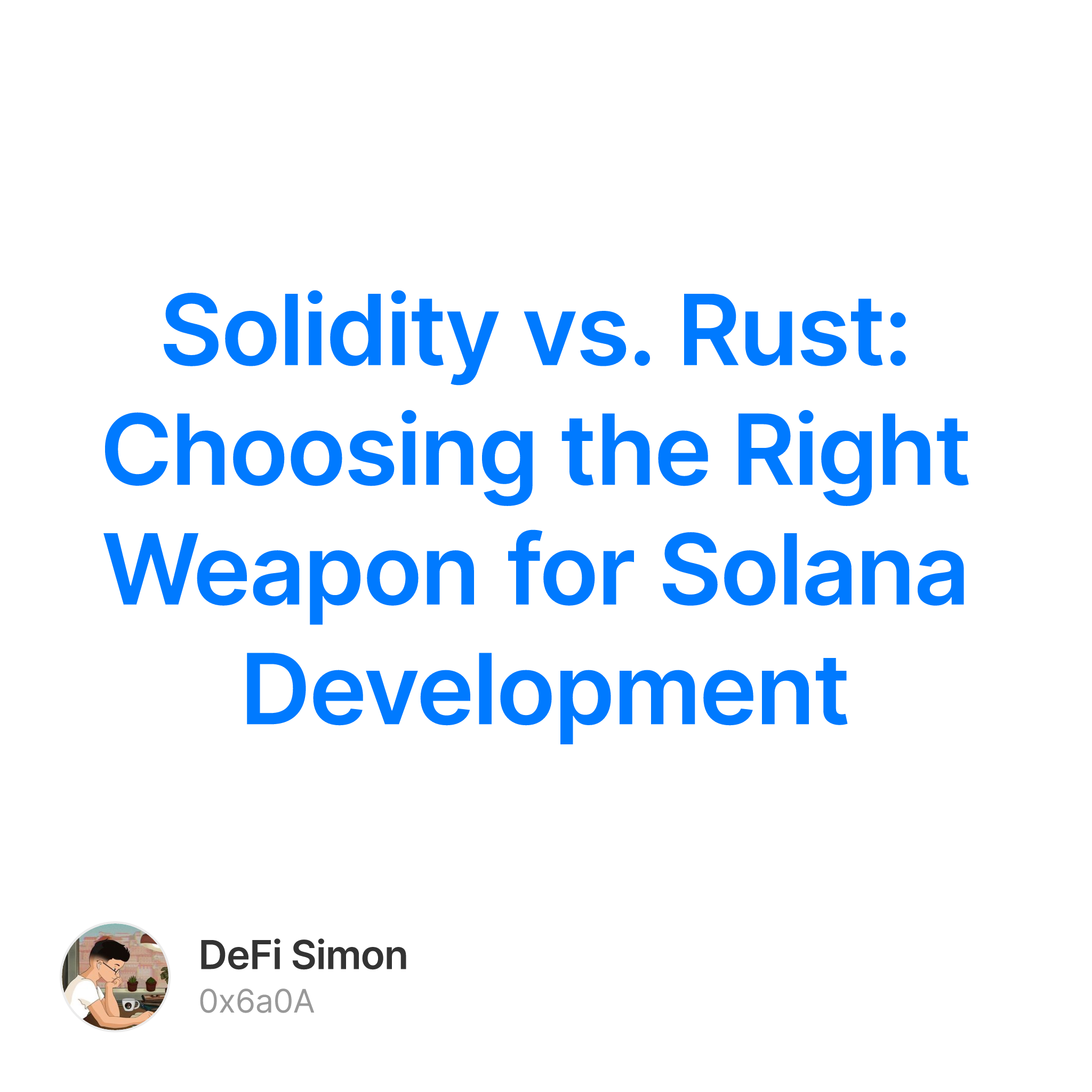The Solana blockchain has emerged as a major player in the crypto space, known for its blazing-fast transaction speeds and low fees. But for developers, the question arises: what language should you use to build smart contracts on Solana? This blog post dives into the two main contenders: Solidity (with Solang) and Rust, helping you choose the right tool for the job.
Solidity: The Familiar Friend
Solidity is the de-facto standard for smart contract development on Ethereum. Its object-oriented syntax and extensive developer community make it a popular choice. For those already comfortable with Solidity, there's good news: Solang comes to the rescue.
Solang: Bridging the Gap
Solang acts as a compiler, translating your Solidity code into a format that the Solana runtime environment can understand. This allows you to leverage your existing Solidity knowledge for Solana development. Benefits include:
-
Faster development: With familiar syntax, you can potentially write and iterate on code quicker.
-
Lower learning curve: No need to learn a new language from scratch if you're already a Solidity pro.
However, Solang also comes with limitations:
-
Limited functionality: Not all Solidity features might be supported by Solang, potentially hindering complex smart contract development.
-
Security considerations: Introducing an additional compilation step adds another layer that could introduce vulnerabilities.
-
Less control: Solang translates your code, so you might have less control over fine-grained optimizations compared to directly using Rust.
Rust: The Performance Powerhouse
Rust is Solana's native language, known for its focus on memory safety and performance. Here's why Rust might be the champion for your project:
-
Unmatched performance and security: Rust's design prioritizes these aspects, leading to potentially more efficient and secure smart contracts.
-
Full Solana integration: Develop directly in Rust to gain full access to Solana's features and functionalities.
-
Thriving developer community: The Rust developer community is rapidly growing, providing a wealth of resources and support.
But Rust also has its challenges:
-
Steeper learning curve: If you're new to Rust, there's a significant learning curve compared to using Solidity with Solang.
-
Slower initial development: Learning Rust and the Solana development environment might take longer upfront.
Choosing Your Weapon
The ideal language depends on your specific needs:
-
Go with Solidity and Solang if: You're already comfortable with Solidity and need a quicker entry point for Solana development. However, be aware of potential limitations and security considerations.
-
Embrace Rust if: You prioritize performance, security, and full control over your smart contracts. You're comfortable with learning a new language or are interested in a growing developer community.
Remember: There's no one-size-fits-all answer. Consider your project requirements, team expertise, and desired development speed when making your choice. By understanding the strengths and weaknesses of Solidity with Solang vs. Rust, you can equip yourself with the right weapon to conquer the Solana blockchain.
